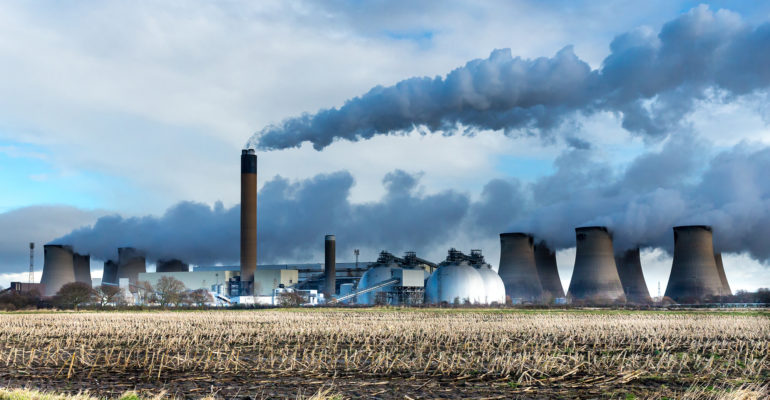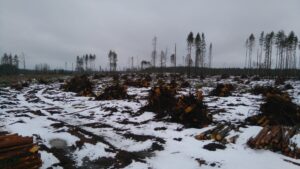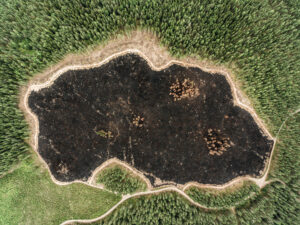New report: Industries dodge 12 billion euro bill annually due to emissions loophole for biomass
Image credits: Coatesy/Shutterstock.com
CO2 emissions from burning biomass for energy are not included in the EU Emissions Trading System – despite demonstrably being as least as high as emissions from fossil fuel at the smokestack.
In a new report released by Birdlife, for the first time ever the ignored emissions of burning biomass – burning trees – in the EU have been quantified. 234 million tonnes of CO2 emissions in 2019, more than 15% of all emissions currently reported in the Emissions Trading System (ETS).
Yet the emissions from the combustion of biomass are not included in what industries must account for in the ETS. The fact the emissions from biomass are ignored represents a huge subsidy for installations burning biomass, as the ETS otherwise requires polluters to pay a carbon price for their CO2 emissions.
The total value of ignored emissions from biomass can be quantified as approximately 12 billion euros of ETS revenues that are lost to Member States every year.
Biomass use in the ETS in the EU27 is projected to rise in all scenarios considered under the European Commission’s Climate Target Plan, by 9–19% by 2030, and by 66–80% by 2050.
Birdlife is calling on the EU to stop treating solid biomass as a “zero carbon” fuel in the ETS. Instead, the IPCC’s emission factors for solid biomass should be used.
The EU Parliament’s Environment Committee will vote on a proposal to revise the ETS on the 16-17 of May, with a plenary vote expected in June.
Kenneth Richter, Bioenergy Policy Officer at Birdlife Europe: “Ignoring emissions from biomass burning in the ETS is unscientific, damages the EU’s climate ambitions and means member states lose billions in revenues. On May 16th the European Parliament must vote to fully account for biomass emissions in the ETS. The EU is saving some of the worst climate polluters in the world over 12 billion euros a year. This must stop now. Those putting carbon into the atmosphere must pay for remediation action, regardless of the type of carbon they burn.”
For more information, please contact:
Kenneth Richter, Bioenergy Policy Officer at Birdlife Europe
+49 176 23593712
kenneth.richter@nabu.de
Honey Kohan, Communication Manager, BirdLife Europe and Central Asia
+32 483 55 95 43
honey.kohan@birdlife.org





